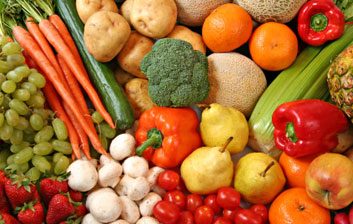
Gluten-free diets
Gluten-free diets can be healthy and for some they’re absolutely necessary. But many people think they have a gluten allergy without having been tested for it, and that means they could be missing their actual health issue, such as irritable bowl syndrome, explains Vancouver-based dietitian Desirée Nielsen. Before ditching gluten, ask your physician for a test to see if you’re truly allergic, Nielsen suggests. Keep in mind that a wheat allergy or celiac disease screening won’t work if you’ve already gone gluten-free.
Another reason gluten-free diets worry Nielsen is, despite being hyped as healthy, gluten-free products “are often filled with processed flours like (white) rice flours.” While they’re more difficult to find, less mainstream brands are now offering gluten-free options with brown rice or other whole grains.

Mud runs
Inspired by military training, mud runs involve, well, running through mud, and overcoming challenges – like obstacles that must be climbed over or pipes that must be crawled through. The problem is, no matter how fit you are, mud runs are dangerous. Because mud is slippery, it’s easy to lose your grip and fall during challenges that involve holding on to ropes or monkey bars. Slipping and sliding with other bodies around also increases the risk of injury.
And it’s not just hypothetical. One U.S. man was paralyzed after an awkward landing in a mud pit and a Texas woman was badly burned on her arms after falling into a fire contestants were supposed to jump over.

Raw food diets
Raw foodists argue the cooking process harms naturally occurring enzymes, vitamins and minerals. But our stomach acids destroy enzymes in the same way, and some nutrients, like carotene in carrots, are actually easier for our bodies to absorb when heat breaks down the outer layer surrounding the vitamin. While it’s true many fruits and vegetables are more vitamin-packed when raw, you can benefit simply by adding more salads and fresh veggies to your diet.
A raw food diet is difficult to do well, as sprouting beans and lentils is time consuming. Many raw foodists “end up consuming a lot of fat (from foods like avocado and coconut) and carbohydrates, but not a lot of protein,” says Nielsen.

CrossFit
While the safety of CrossFit workouts depend on the person doing them and the instructor, speed and intensity tend to be prioritized over technique in many CrossFit workouts. The socially supportive atmosphere can be motivating, but it can also make participants feel pressured into lifting more or doing more repetitions than they should.
In addition, the workout tends to be a one-size-fits-all approach, and certain exercises can be dangerous for older people or for those new to working out. In one study, published earlier this year in the Journal of Strength and Conditioning Research, nine of the 54 participants recruited – or 16 percent – dropped out due to “overuse or injury.”
Critics of CrossFit have even linked it to rhabdomyolysis, a serious condition that results from the breakdown of muscle cells.
Bottom line: If you want the full body workout benefits of CrossFit without the high risk, be sure to do your research. Aim for a class with smaller teacher-to-student ratios and look for an instructor that cares about technique, respects limits and has more training than just CrossFit certification.

Detox diets
Contrary to popular belief, the body is already continually working to cleanse itself, and needs nutrients to do so – including protein. According to Nielsen, many fast-based detox diets hamper your body’s detoxing capabilities, and can also “disturb the balance of healthy bacteria in the digestive tract.” Healthy detox diets should cut out alcohol and junk food, include a great deal of foods that have natural cleansing properties, like broccoli, kale and collard greens, and shouldn’t leave you ravenous.
That said, a couple weeks of detoxing a year won’t have a lasting difference on your health. “One of the big misconceptions is that you can cleanse for one or two weeks a year and go back to your normal diet,” says Nielsen. Instead, detox diets are useful when the results you feel, like increased energy, inspire you to incorporate healthy habits for the long term.
Related:
• Do you need to go gluten-free?
• Trying a juice cleanse
• Can you get fit quick?
